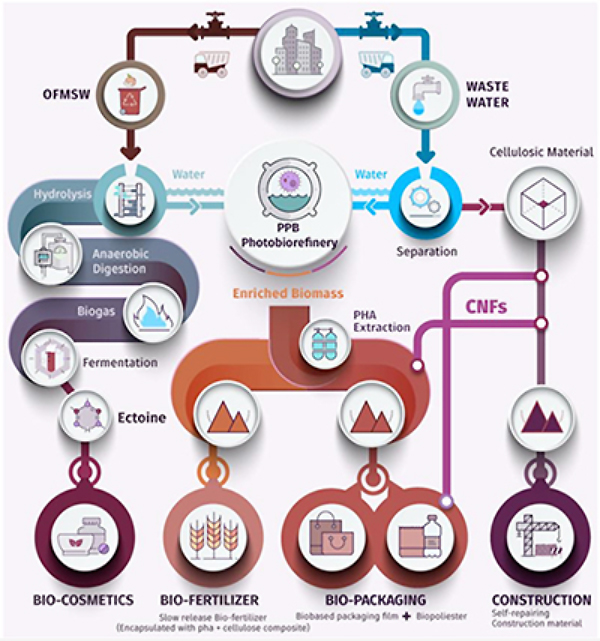Purple could feature heavily in the future of cosmetics, thanks to a clever bacteria that turns human sewage into some of the valuable ingredients found in today’s popular beauty products.
Currently, 75% of the EU’s 138 million tons of urban ‘biowaste’ finds its way into an incinerator or into landfill annually, at a huge ecological and economical cost.
But now a new £8.4m project plans to show how an organic substance called Purple Phototropic Bacteria (PPB) can be used to extract valuable products such cellulose, methane and sugars from urban sewage and waste water for use in cosmetics, fertilizers and bioplastics.
“There have obviously been perfectly-valid hygiene concerns about using something that started as human sewage to make cosmetics, but we think Deep Purple will show that we can extract valuable goods in a clean, hygienic, environmentally friendly and cost-effective way,” said Dr Evina Katsou from Brunel University London, one of 14 international partners on the 48-month project.
“Every time we pull the flush, we’re wasting valuable, recoverable compounds, and we plan to show that it really doesn’t need to be that way.”

The so-called ‘bio-refinery’, funded by the EU’s 2020 Horizon programme, will be built across two demo sites – one in Spain and one in the Czech Republic – and will collect together over 400,000 cubic metres of waste per year from several sources, including sewage, domestic organic refuse and wastewater.
The waste will then be processed using techniques such anaerobic digestion, fermentation, and the PPBs, to extract a range of valuable, useful substances.
“We’ve extracted useful products from animal waste for decades, and it’s exciting that we’re now able use modern expertise to do the same for human waste,” said Dr Katsou.“I look forward to a future where both your cosmetics, and the packaging they come in, will have started life – in a small way – as human sewage.”
Project website “Deep Purple”, funded by Horizon 2020.
Contact info:
Tim Pilgrim, Media Relations
+44 (0)1895 268965
tim.pilgrim@brunel.ac.uk










